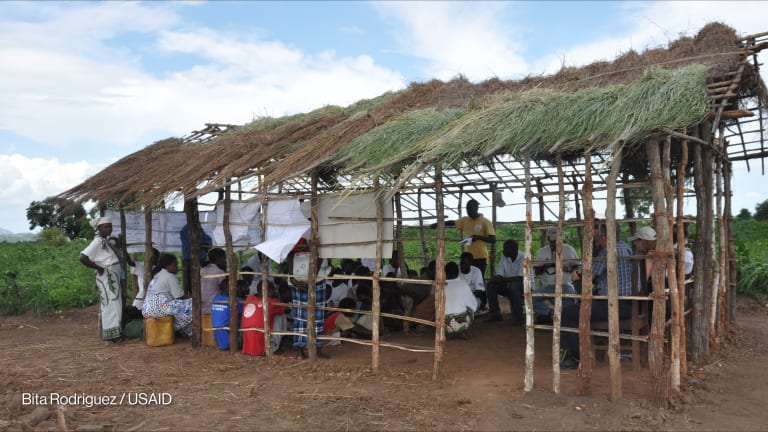
The United States unveiled a multibillion-dollar “action plan” by key global financial institutions Wednesday to tackle the growing food security crisis, which the International Monetary Fund and others say threatens political stability in many countries.
Get the inside track on how agriculture, nutrition, sustainability, and more are intersecting to remake the global food system in this weekly newsletter.
The plan is a mix of existing and new funding, with the World Bank making up the largest chunk at $30 billion. The anti-poverty lender said it was working on “$12 billion of new projects for the next 15 months,” while the balance is from undisbursed funds within the existing portfolio.
Why it matters: The multipronged, multi-institutional approach stems from a meeting U.S. Treasury Secretary Janet Yellen held in April with global finance leaders. Food prices are soaring, and the costs for inputs, such as fertilizers, have doubled. The problem has been made worse by the war in Ukraine.
“The Russian war against Ukraine is the latest global shock that is exacerbating the sharp increase in both acute and chronic food insecurity in recent years driven by conflict, climate change and economic downturns, such as those associated with the COVID-19 pandemic,” according to a U.S. Department of the Treasury statement for Yellen’s visit to Europe this week.
Food prices up 37%, middle-income nations in crosshairs: World Bank
The World Bank warns that food prices are pushing people around the world into extreme poverty.
Division of labor: The plan leverages institutions’ areas of expertise. The Asian Development Bank will focus on Afghanistan and Sri Lanka, for example, while the European Bank for Reconstruction and Development is organizing food security and trade finance for $500 million, with $200 million going to Ukraine and the rest to neighbors. Meanwhile, the African Development Bank is hoping its annual meeting next week sees progress on a $1.5 billion facility.
The International Fund for Agricultural Development aims to invest $3.5 billion in 78 low-income countries over the next three years. IMF, meanwhile, will provide policy advice to countries, such as on social safety nets.
Next steps: U.S. Secretary of State Antony Blinken is in New York this week and will convene talks at the United Nations “to mobilize action on global food security.”

Search for articles
Most Read
- 1
- 2
- 3
- 4
- 5








